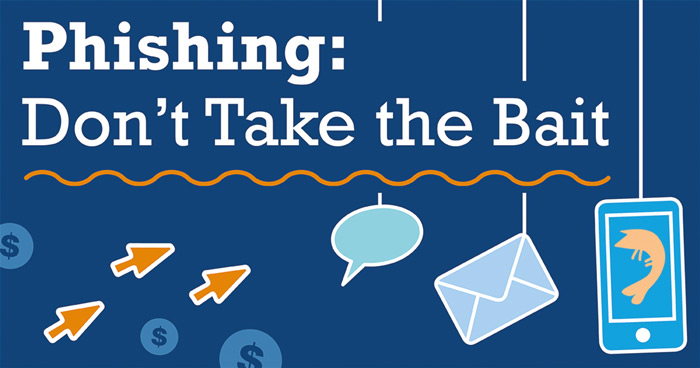Photo Courtesy of the U.S. Federal Trade Commission
By Forum Staff
The Internal Revenue Service recently ramped up efforts to encourage taxpayers to report any and all phishing scams with which they might have come in contact.
Phishing, according to the IRS, is a scam typically carried out through unsolicited email and/or websites that pose as legitimate sites and lure unsuspecting victims to provide personal and financial information.
The agency noted that it does not initiate contact with taxpayers by email, text messages, or social media channels to request personal or financial information. This includes requests for PIN numbers, passwords, or similar access information for credit cards, banks, or other financial accounts.
If you receive an email claiming to be from the IRS that contains a request for personal information, taxes associated with a large investment, inheritance or lottery:
Don’t reply.
Don’t open any attachments. They can contain malicious code that may infect your computer or mobile phone.
Don’t click on any links. Visit the IRS identity protection page if you clicked on links in a suspicious email or website and entered confidential information.
Forward—preferably with the full email headers—the email as-is to the IRS at phishing@irs.gov. Don’t forward scanned images because this removes valuable information, according to the agency.
Delete the original email.
IRS officials also noted that IRS impersonation telephone calls—as well as other types of unwanted calls (e.g., telemarketing robocalls, fake grants, tech support, sweepstakes winnings, etc.) remain popular scams. Blocking these types of calls is one strategy taxpayers should consider, the agency said. Easy to install call blocking software for smartphones is also available.
However, if you receive a phone call from someone claiming to be from the IRS but you suspect they are not an IRS employee:
View your tax account information online or review their payment options at IRS.gov to see the actual amount owed
If the caller is an IRS employee with a legitimate need to contact you, please call them back using the appropriate online resources
If the individual is not an IRS employee and does not have a legitimate need to contact you and regardless of whether you were a victim of the scam or not, report the incident to the appropriate law enforcement agencies:
If IRS-related, report to the Treasury Inspector General for Tax Administration via their online complaint form.
If Treasury-related, please report to the Office of the Treasury Inspector General via OIGCounsel@oig.treas.gov
The agency has asked taxpayers to report IRS or Treasury-related fraudulent calls to phishing@irs.gov (Subject: IRS Phone Scam).
For ANY suspected fraudulent call, after listening to the message, do not provide any information and hang up. When you report the scam call, the agency instructed potential targets to include: the telephone number of the caller (e.g., Caller ID); the telephone number you were instructed to call back; a brief description of the communication. If possible, include: the employee name; the employee badge number; the exact date and time that you received the call(s); the geographic location and time zone where you received the call if possible.

